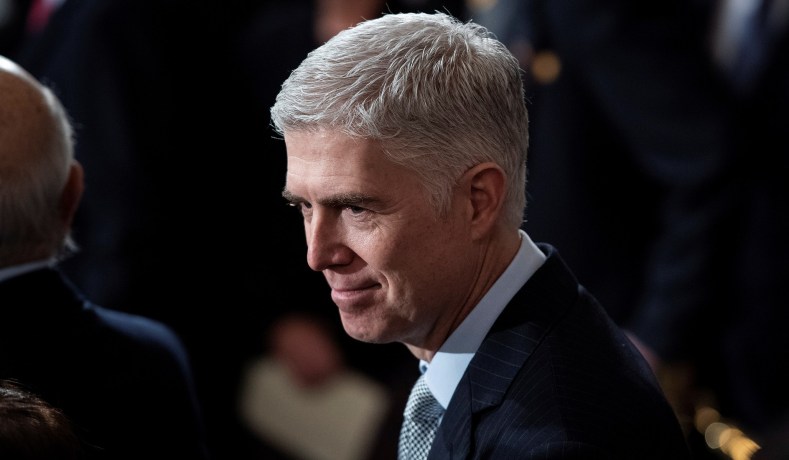
(Jabin Botsford/Reuters)
I’m not qualified to wade into the legal details of today’s Supreme Court decision in Bostock v. Clayton County, Ga., in which Justice Neil Gorsuch wrote for the six-justice majority, determining that the prohibition on “sex discrimination” in the Civil Rights Act of 1964 makes it illegal to fire an employee on the basis of his sexual orientation or gender identity.
But the case presents an opportunity to consider what the future might hold for religious Americans, most of whom believe that marriage is, by its nature, a union between one man and one woman, and that biological sex is both meaningful and immutable.
To do so, it is worth first pointing out the trouble with the central analogy at the heart of Gorusch’s opinion, which he uses to explain why he believes that discrimination on the basis of sexual orientation or gender identity falls under the 1964 Civil Rights Act’s ban on sex discrimination:
An individual’s homosexuality or transgender status is not relevant to employment decisions. That’s because it is impossible to discriminate against a person for being homosexual or transgender without discriminating against that individual based on sex. Consider, for example, an employer with two employees, both of whom are attracted to men. The two individuals are, to the employer’s mind, materially identical in all respects, except that one is a man and the other a woman. If the employer fires the male employee for no reason other than the fact he is attracted to men, the employer discriminates against him for traits or actions it tolerates in his female colleague. Put differently, the employer intentionally singles out an employee to fire based in part on the employee’s sex, and the affected employee’s sex is a but-for cause of his discharge.
Robert P. George has explained here at NRO far better than I could why this analogy fails, but here’s my simple summary: For the analogy to accurately represent the situation, you can’t simply flip the sex of the person in question; you must also flip their behavior or action. The appropriate analogy, then, would be if the woman in question were attracted to another woman, not to a man. That additional change would allow the analogy to reveal whether the actions in question are, in fact, sex-based discrimination.
Meanwhile, today’s ruling showcases the wisdom of what Ryan Anderson wrote in the Spring 2020 issue of National Affairs. He argued, quite convincingly, that religious Americans have done ourselves a disservice by fighting cultural and public-policy battles about marriage, sex, and gender in terms of religious freedom rather than in terms of the substance of each issue and the reasoning behind our views.
In making this case, he means no slight — nor do I, when I echo him — to religious liberty or to the legal strategy of relying on the First Amendment or religious-freedom legislation to protect people like Jack Phillips. Rather, Anderson defends the prime importance of religious free exercise while also pointing out the flaws in a policy strategy that, in essence, tacitly admits to using one’s religious beliefs as a “license to discriminate.” Far better to argue that Jack Phillips’s view of marriage as between one man and one woman is reasonable and grounded in biology and human nature — not that he should be exempted from an otherwise entirely reasonable law because he has an idiosyncratic, possibly harmful religious belief that is protected by the First Amendment.
It is impossible, of course, to predict how outcomes might’ve been different given a different public-policy strategy, but it’s easy to imagine that Americans with a natural-law understanding of sex and the human person would have been much better served by spending all these years arguing for why acting on our beliefs isn’t discrimination or bigotry at all, rather than angling for religious carve-outs that appear to concede that we are bigots looking for special treatment.


